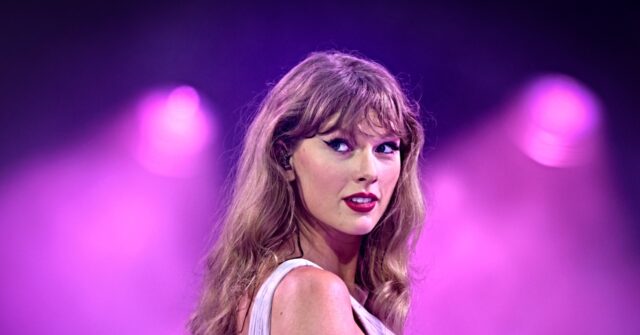US pop icon Taylor Swift recently received a special police escort for her concerts in London, following the cancellation of her performances in Vienna due to a thwarted suicide attack plot. This alarming incident involved an Islamic State sympathizer who was allegedly planning a deadly attack during one of her concerts in Austria. The situation led to heightened security measures and subsequently cancellations of three scheduled shows in Vienna, raising concerns about safety at large-scale events. In light of these developments, Swift’s London concerts were heavily scrutinized, with some questioning the preferential treatment she supposedly received from authorities.
Culture Minister Lisa Nandy firmly denied assertions that Swift was granted special treatment, despite reports suggesting her escort was akin to those reserved for senior political figures and royals. Nandy’s comments came in the wake of a political scandal involving Prime Minister Keir Starmer, who recently repaid the value of gifts, including six tickets to Swift’s concert. This situation has stirred criticism towards the new Labour government for allegedly accepting free gifts, further complicating the narrative around Swift’s security arrangements. Starmer’s attendance with his wife has also drawn attention to the intertwining of politics and celebrity culture in contemporary society.
Nandy maintained that the decision to grant Swift a police escort was not influenced by government pressuring any specific individual. Meanwhile, Interior Minister Yvette Cooper emphasized that assigning security details is an operational matter for the police, which is independent of government intercession. This statement was made amidst growing scrutiny as other Labour politicians, including Education Minister Bridget Phillipson and London Mayor Sadiq Khan, also attended the concerts and benefited from complimentary tickets. This added another layer of complexity to the discussion, as the music industry and political affiliations become increasingly interconnected.
The overarching context of Swift’s tour adds depth to this incident. The concert series, which wrapped up in August, was intended to be a significant boon for the UK economy, with estimates suggesting it would generate nearly £1 billion ($1.3 billion) in economic benefit. Yet, the foiled plot in Austria cast a shadow over the tour, leading to rapid assessments regarding possible threats to public safety in London. Reports indicated that there were pressures to increase security that could have ramifications for the economy, should Swift’s shows be jeopardized by a lack of precaution.
Proponents of the security measures argue that the safety of performers and concertgoers is paramount and that any cancellations could lead to considerable financial damage and embarrassment for local economies. Indeed, the decision by the Metropolitan Police to provide Swift with an escort was described as an action taken based on a thorough evaluation of potential risks and threats, underscoring the complexities of keeping high-profile events secure in a climate of international security concerns.
In conclusion, the mixture of celebrity, politics, and public safety continues to inspire debate. The incident surrounding Taylor Swift’s London concert security has highlighted not only the vulnerabilities of large public events but also the reactions of government officials to preventants that critics perceive as preferential treatment. While the Labour government faces accusations regarding the handling of complimentary gifts, the underlying issue remains focused on ensuring safety in an entertainment landscape increasingly fraught with potential threats. The intersection of pop culture and politics in this context fosters an ongoing dialogue about the responsibilities of public figures and the state in safeguarding entertainment and its economic implications.

